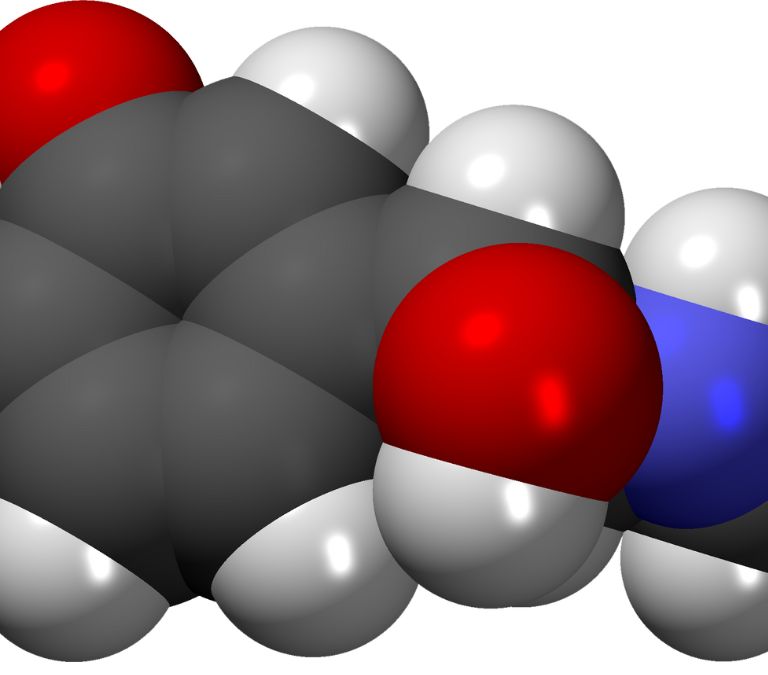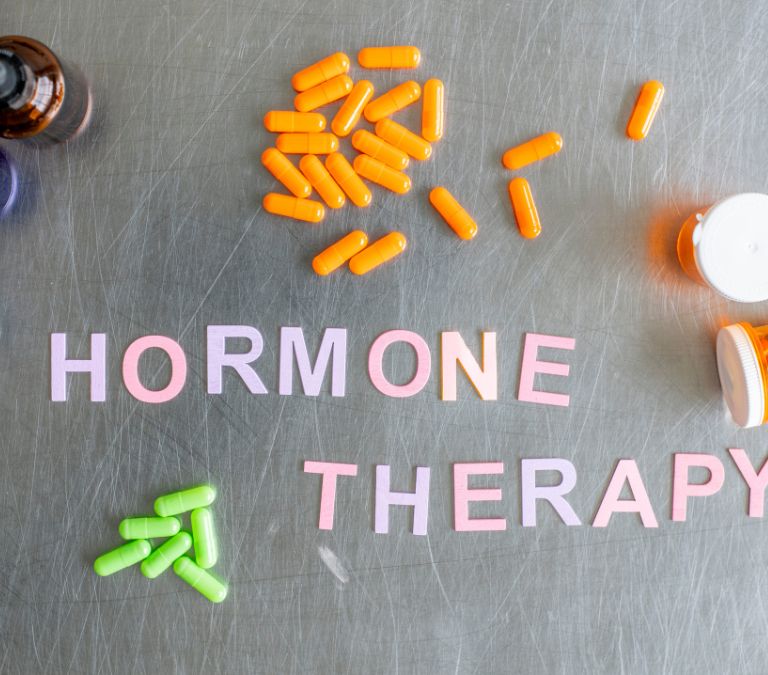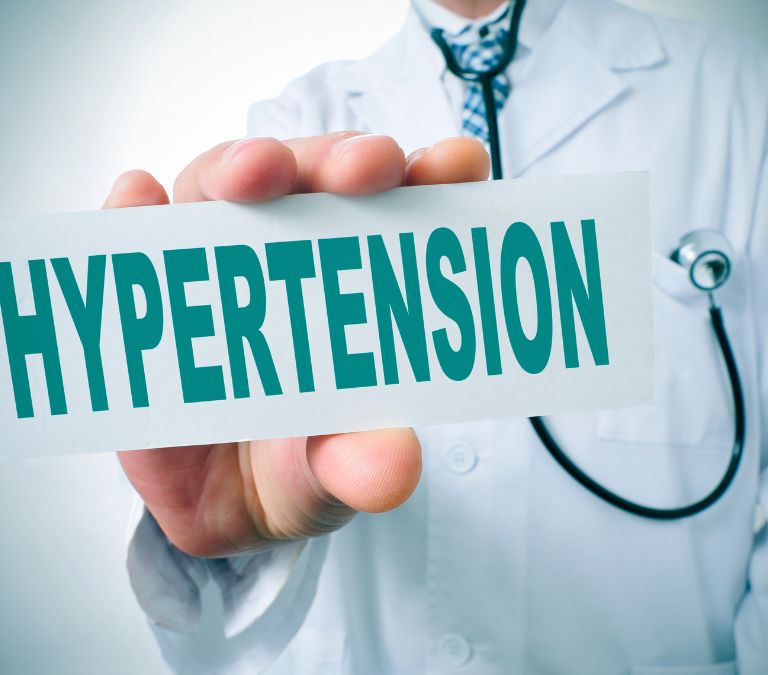Due to the symptoms such as hypertension, hot flashes, weight loss/gain e.t.c that are associated with menopause, various treatment options have been made available to help alleviate them. Of these treatment options, hormone replacement therapy has become very popular.
The symptoms of menopause are caused by fluctuations in vital hormones like estrogen and progesterone. Estrogen, the hormone responsible for developing secondary sexual characteristics and regulating menstrual cycles, is the most affected during menopause. Hormone replacement therapy has been adopted to balance this fluctuation.
Why Knowing Your Hormones is Important

As women, there are three essential sex hormones we ought to note. They are estrogen, progesterone, and testosterone, and all these hormones play specific roles in our bodies.
As we get to menopause, the ovaries, the primary producers of our sex hormones, stop making these hormones. Due to this abrupt termination of hormone production, symptoms begin to appear. These are known as menopausal symptoms and often come in palpitations, hot flashes, night sweats, etc.
While low hormone levels often characterize mild symptoms like those listed above, other long-term conditions such as heart attacks and cardiovascular disease may also appear. From this, our risk of other diseases like stroke and dementia increases. Women must know and understand how these hormones work and their importance to the body.
Menopausal Hormone Therapy
Also referred to as hormone replacement therapy, menopausal hormone therapy is treatment taken to cushion the symptoms of menopause. It works by replacing the deficient hormones or at a lower level during menopause. With MHT, symptoms like hot flashes, night sweats, vaginal dryness, mood swings, and reduced sex drive can be relieved.
While menopausal symptoms are known to pass after a few years, they can sometimes be excruciating, leading to the urgency of medications like MHT. As an added advantage, menopausal hormone therapy can also help prevent the weakening of the bones (osteoporosis), which may be triggered by fluctuating hormones, a characteristic feature of menopause.
Risks of Menopausal Hormone Therapy

For many years, menopausal hormone therapy has been widely accepted as the best treatment option for the symptoms of menopause. While this is true even today, some risks have been linked. Some of these risks include dementia, breast cancer, blood clots, heart disease, stroke, type 2 diabetes, and loss of muscle strength.
While the benefits of Hormone Replacement Therapy are known to outweigh the risks, HRT can cause problems as severe as cancer and, more recently, hypertension. Before they uncovered the dangers of HRT, many women took this treatment option to alleviate the difficulties of menopausal symptoms. However, the number of women taking HRT has significantly dropped since researchers linked it to breast cancer.
Combination HRT will increase the likelihood of breast cancer being diagnosed at an advanced stage and increase the probability of death from breast cancer.
Hypertension in Women
Hypertension is the condition of high blood pressure. As the blood circulates through the arteries, it tends to go relatively stable and slow. When the pressure of the circulating blood increases at a fast pace, then hypertension is imminent. Hypertension is a severe medical condition and, as such, has to be handled with utmost urgency. Hypertensive patients are more susceptible to heart, kidney, and brain diseases.
While hypertension is generally more prevalent in men than women, it has been proven that the rate of rising blood pressure is more elevated in women than in men. Also, research has confirmed that the severity of hypertension is more pronounced in women as they age. For example, in the United States, there’s a higher percentage of hypertension in women after 65 than in men during the same period.
Effects of Menopause on Hypertension
Menopause’s effect on hypertension is still very controversial as age remains a contributing factor to the development of hypertension. For this reason, hypertension is more linked to old age than menopause. However, the prevalence of hypertension in postmenopausal women is steeper than the prevalence of hypertension in premenopausal women, even when there’s very little age difference.
Even with the controversy around menopause, menopause does not play a direct role in developing high blood pressure. What menopause does is that it facilitates an increase in body mass index. Generally, obese people are more susceptible to hypertension. Due to the effect of menopause on obesity, menopausal women who succumb to their proneness to weight gain are at an increased risk of being diagnosed with hypertension.
Effects of Fluctuating Hormones on Incidental Hypertension
Scientists believe that fluctuations in hormones like estrogen and progesterone can increase a woman’s risk of hypertension. While science has proven fluctuating hormones to influence the development of hypertension, it is essential to know that it adopts an indirect mechanism.
As hormonal levels change, the body becomes susceptible to weight gain. If you do not exercise and do other physical activities, you easily succumb to weight gain, making your blood pressure more sensitive to salt in the diet. As a result of this increased perception and sensitivity to salt in the diet, high blood pressure and hypertension may begin to show. Menopausal women are advised to eat fruits and vegetables, drink water, and exercise to remedy the weight gain problem,
Effects of BMI on Hypertension
As women approach menopause, the fat builds up in the abdominal region instead of at the hips, which is why many menopausal women become pear-shaped. Due to this gain in weight, the average menopausal woman becomes prone to diseases linked to weight gain.
With the closeness of fat to vital organs in the body, diseases related to the heart may begin to develop. During menopause, the body sometimes produces cortisol, a stress hormone. As the body secretes cortisol, more belly fat is produced, choking and narrowing blood vessels. As a response, the body increases blood flow, and blood pressure rises. If this continues for a long time, the woman becomes more susceptible to hypertension.
How Hormone Therapy Triggers Incidental Hypertension
Currently, the link between menopausal hormone therapy and hypertension is controversial. While some scientists see hormone therapy as the gateway to preventing cardiovascular diseases, others see it as a pathway to increased risk of cardiovascular diseases.
A study on more than 40,000 postmenopausal women in Australia reported that menopausal hormone therapy was associated with a higher probability of high blood pressure. The research observed that hormone therapy increases the likelihood of hypertension and other cardiovascular diseases as the woman ages.
Women between 62 and 71 years of age were twice more likely to be diagnosed with diseases related to the cardiovascular system than women between the ages of 56 and 61. Also, women placed under hormone therapy for more extended periods have higher odds of developing hypertension than women placed under the same treatment for short periods.
Even with the research conducted in Australia, the effect of hormone therapy on hypertension remains unclear. For example, hypertensive postmenopausal women placed under hormone therapy have reported a slight decrease or constant blood pressure. Non-hypertensive menopausal women who take hormone therapy are at an increased risk of developing hypertension. In contrast, hypertensive menopausal women who take hormone therapy tend to show minor changes in blood pressure.
Further research reveals that menopausal hormone therapy significantly impacted the development of incident hypertension. The risk increases even further for women who use oral estrogen combined with progestogens like norpregnane and pregnane derivatives.
Oral Estrogen & Incidental Hypertension
Oral estrogen is the estrogen administered to women through oral contraceptives. For many years, doctors worldwide have seen this estrogen option as the best form of estrogen for a patient’s heart. However, this is not very true. A recent study showed that long-term exposure to estrogen, especially those given in the form of oral contraceptives and HRT, can expose women to diseases related to blood pressure.
Researchers from Michigan State University found that when estrogen is given to a menopausal woman for long periods, her body generates excessive superoxide. This compound triggers stress in the body. Unfortunately, superoxide is produced in an area of the brain responsible for regulating and coordinating blood pressure. As the superoxide chemical builds up in this part of the brain, blood pressure increases become imminent.
The importance of this study cannot be overemphasized. The link between hormone therapy and hypertension has been studied with this research, and a hypothesis has been formed. While every woman in the United States takes hormone therapy to help with their menopausal problems, it is incumbent that we understand the risks this treatment poses regarding incidental hypertension and other cardiovascular system problems.
Alternatives to Menopausal Hormone Therapy
Due to the complications involved with hormone therapy, women today are advised to seek better and safer options in combating their menopausal problems. It is essential to know that while some women have reported complications when taking hormone therapy, others have reported zero issues. Seeing the doctor is essential before attempting to take anything you aren’t sure of.
Lifestyle changes remain the best alternatives to hormone therapy. By lifestyle changes, we mean engaging in exercises and diet options.
Engaging in Exercises

Diseases of the human body, especially heart diseases, can be prevented by regular exercise. Regular exercise boosts the low-density lipoprotein cholesterol level in the body, decreasing unhealthy triglycerides and reducing our susceptibility to cardiovascular diseases.
The excellent news about menopausal symptoms is that they are cushioned by adopting lifestyle changes. While these changes are not potions to cure these symptoms, they can be assumed to cope with the changes in the body.
The effects of these menopausal symptoms can vary from one woman to another, and the results of these exercises can also differ from one woman to another. Finding the best routine that fits you is essential.
So many women today tend to engage in less physical exercise on clocking menopause. With this, they become more sedentary and less active. Studies have shown that regular exercise can effectively manage many menopausal symptoms. We ought to embrace the concept of exercise as women.
Whether moderate or vigorous, exercises have been proven to help burn calories, prevent weight gain and maintain a healthy heart. You can start with walking long distances, then running on the treadmill. Exercise will help manage diseases related to the cardiovascular system, but it’ll also help cushion the effects of other menopausal symptoms like hot flashes and anxiety.
Try riding a bike to the bookstore instead of using the car. Do less sitting and more standing, go swimming with friends and relatives, use the stairs instead of the elevator, and try as much as possible to work out at least 150 minutes every week. If your work requires you to sit for long hours behind a desk, find time to be less passive. These activities will help you manage the scares of early menopause effectively.
Eating Vegetables; Lots of it

Vegetables are of immense nutritional benefits, and this is because they are packed with various antioxidants, vitamins, minerals, and fiber. Vegetables are often recommended by nutritionists, dietitians, and doctors for healthy living. Up to 50% of your diet should include vegetables.
Women going through early menopause are prone to osteoporosis, a disease characterized by weak and unhealthy bones. With vegetables, these women can utilize the chemicals gotten from veggies to balance the estrogen levels in their systems. With this, they get protection from problems related to weak bones.
Vegetables can help create a balance in the estrogen levels of the body. Notably, studies have shown that women going through early menopause should consume more vegetables than they did to help balance the body’s estrogen levels. Vegetables are used for maintaining a healthy heart and could serve as an immune system booster.
Seeing a Doctor
During menopause, the susceptibility of a woman to various diseases increases. In getting to this stage, we should contact a friendly doctor with whom we can share our menopausal struggles. By keeping a doctor close, you can be sure of a solution when conditions you can’t comprehend come knocking on the door.
Every medication taken to relieve menopausal symptoms should be prescribed by a doctor. Don’t self-medicate, don’t go to google without going to your doctor first.







